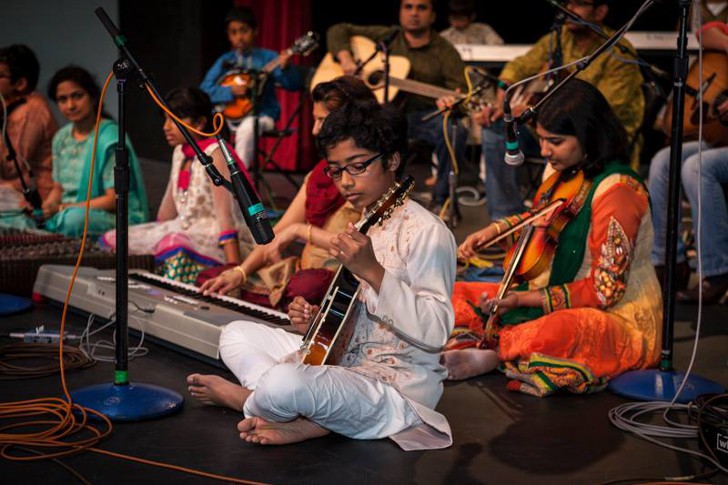The Northwest Folklife Festival was founded in 1971 by the Seattle Folklore Society, the National Council for the Traditional Arts (then known as the National Folk Festival Association), the National Park Service, and the City of Seattle. It was part of the Park Service’s urban outreach program in the Pacific Northwest.
The first edition of Northwest Folklife was held in 1972. Over the years, it has grown to become the largest community-powered arts festival in the United States. The festival celebrates the global traditions of local, independent artists, drawing from over 100 cultural communities.
As we’ve already mentioned above, the festival attracts about 2,500 visitors and presents more than 5,000 musicians, singer-songwriters, dancers, and other artists from Washington and out of state. The festival is free thanks to donations and community support. Attendees are encouraged to make donations in exchange for special buttons with yearly designs.
Each year, the festival focuses on a particular folk tradition or ethnic community. Past cultural focuses include Carnival Arts of the Caribbean, East Meets West, Traditions from the Horn of Africa, Urban Indians, Bulgarian Community Celebration, Arab Communities of the Pacific Northwest, India and its People, and more. The cultural focus is a “festival within a festival” that features performances, exhibitions, workshops, panels, and other events and activities.
The festival is held at Seattle Center, a park, arts and entertainment center originally built for the 1962 World’s Fair. Performances take place on several stages, large and small. Northwest Folklife features concerts by local musicians, participatory dancing, buskers (street performers such as jugglers, musicians, magicians, circus performers), and more. Official acts play without compensation and buskers perform for donations from the crowds, donating a percentage of their earnings to support the festival.
The Northwest Folklife Festival encompasses many music genres and styles including traditional music from different corners of the world, Balkan brass, rockabilly, jug band, folk punk, and other music which is difficult to categorize and put a label on. Dance performances include Morris dancing and other kinds of international folk dancing, blues, and swing.
In 2020 and 2021, the event was held online due to the coronavirus pandemic.

Photo: nwfolklife.org




